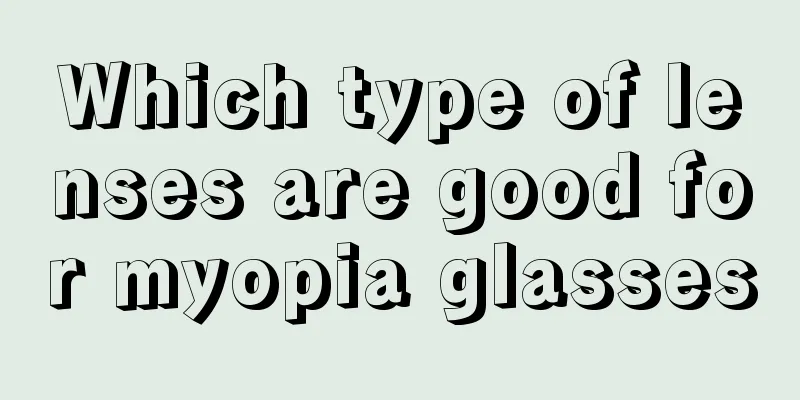Which type of lenses are good for myopia glasses

|
Nowadays, many children are found to be myopic when they enter primary school. They have to wear glasses because they cannot see the blackboard clearly. Parents all want to choose the best glasses for their children. As long as the frames fit well and don't fall off, it's fine. Choosing the lenses is usually a bit difficult. After all, we don’t know much about eyeglass lenses, so when we see lenses of various materials in eyewear stores, we don’t know which one is better. In fact, resin lenses are generally better. Personally, I think resin lenses are more cost-effective, so next, I will focus on resin lenses. I hope the common sense I have shared can help you choose a suitable lens. There is no best lens, only the most suitable one. Resin lenses are divided into ordinary, ultra-thin, extra-thin, spherical, aspherical, photochromic and non-photochromic. The thickness of the lenses is divided into: ordinary, ultra-thin, and extra-thin; you can choose according to your personal preference. Generally, thin lenses will have a relatively higher price. There is no need to be particular about this. Generally, if the lens changes color, it can be inferred that the lens is radiation-proof. If it does not change color, it is not radiation-proof. It is recommended to choose photochromic lenses. Lenses can be divided into spherical and aspherical depending on how objects are viewed. Aspherical surfaces allow objects to be seen more clearly without distortion and can also prevent further deepening. A spherical surface means that objects can be viewed on only one plane. If you squint and look around, the scenery you see may be a little distorted and have no sense of three-dimensionality. Resin lenses are widely used because of their good quality and relatively affordable price. However, its disadvantage is that it is easy to scratch and there is no way to repair it once scratched, so remember to put it in the glasses case when not in use, which can increase its service life. Under normal circumstances, a resin lens can be used for 2 years, and if it is well protected, it can be used longer. Lenses have more and more functions. Anti-ultraviolet, anti-fatigue, anti-radiation, photochromic lenses, etc. are gradually entering the public's field of vision. However, which type of lens is suitable for you depends on your eye usage. For example, if you are a student and often use your eyes at close range, it is easy to get eye fatigue, then you might as well wear a pair of anti-fatigue lenses; if you are an office worker, facing the computer every day, and often exposed to the invasion of blue light, it is definitely suitable for you to wear a pair of anti-blue light lenses; if you often run back and forth indoors and outdoors, it is definitely more suitable to choose a pair of photochromic lenses... So which type of lens is better depends on your own situation. |
<<: Advantages and disadvantages of blue light glasses
>>: Anti-slip cover for glasses
Recommend
Why does eating hot peppers cause bleeding in the stool?
For those friends who have bleeding stools after ...
Where is the lumbar pelvis located
There is a very important bone in the human body,...
What are the do’s and don’ts for health preservation during the twelve hours?
Ancient health experts proposed the 12-hour healt...
What is the recurrence rate of nasopharyngeal carcinoma and how to treat it
Nasopharyngeal carcinoma is a very common cancer ...
How to kill mites most effectively_How to remove mites most thoroughly
Mites are very common around us, but we can't...
Will long-term poor sleep affect blood sugar?
Poor sleep has a great impact on our health. Long...
Does liver pain mean liver cancer? Liver pain is mainly caused by these 4 reasons
Many people become overly panicked when they find...
Tomatoes are bitter
Tomatoes can be eaten as a vegetable or as a frui...
How to quickly remove kettle scale?
Water is the source of life. People must drink a ...
What tests are needed if rectal cancer is suspected? 4 tests are required for rectal cancer screening
Rectal cancer is a digestive tract tumor. Once it...
Lower abdominal pain on the tenth day after delivery
Childbirth is something that many women will even...
Let's listen to experts analyze the causes of bone cancer
There are many causes of bone cancer in life, but...
Bacteria in the throat
Throat fungus is the name of a disease in traditi...
Can chestnuts be eaten overnight?
A lot of food in our daily life cannot be eaten o...
What are the effects of boric acid?
Boric acid is commonly used when applied to glass...









